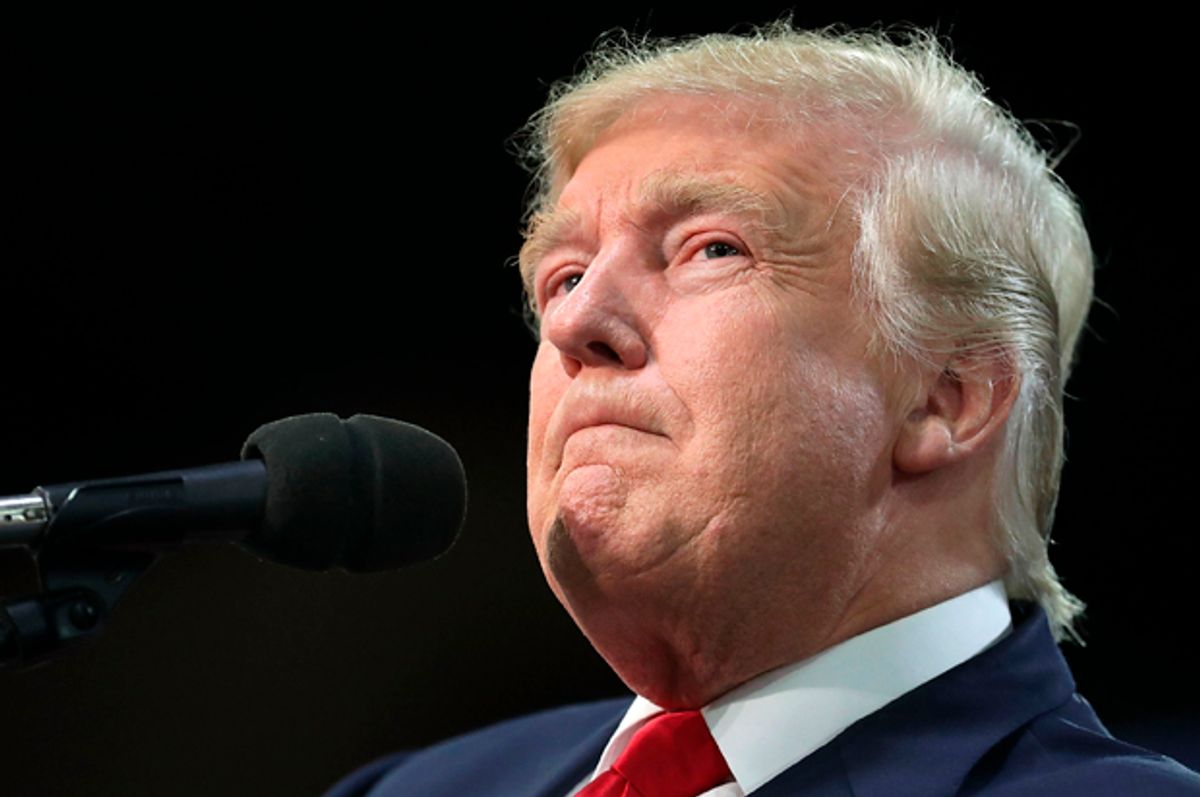Donald Trump's presidency is in many ways unprecedented (no, I'm not going to write "un-presidented" — I love puns but even I think that one is stupid). He is our first president to enter office without any political or military experience — against the wishes of his own party establishment.
At the same time, there is one important way in which Trump's presidency wasn't unprecedented, and that is the degree to which it will push American politics to the right. Make no mistake about it, Trump is likely to be a very conservative president. But there have been other inaugurations within the last 100 years or so that have also signaled major rightward shifts. For historical perspective if nothing else, these are worth discussing.
George W. Bush: January 20, 2001
While the election of 2000 is perhaps best remembered for the 36-day recount in Florida over the eventual victor, it's easy to forget the magnitude of the stakes in this one. Even as Green Party candidate Ralph Nader insisted that there was no meaningful difference between Bush and his Democratic opponent Al Gore, the two men staked out drastically different positions on issues ranging from fighting global warming to whether the Clinton-era budget surplus should invest in new technologies instead of offering tax cuts to the wealthy. In later years, Gore would become one of the first prominent Democrats to outspokenly blast Bush for trying to get America into the Iraq War, suggesting that his presidency might have averted that foreign policy calamity as well.
Ronald Reagan: January 20, 1981
Unlike the nailbiter that was the 2000 election, the election of 1980 was an easy win for Republican candidate Ronald Reagan, given that President Jimmy Carter was wildly unpopular due to a sagging economy and the ongoing Iranian hostage crisis. Nevertheless, the ramifications of Reagan's victory were without question much greater. This was a president who openly deplored the idea of government providing assistance to the poor, to oppressed racial minorities, to women, to the LGBT community. Although Democrats had become shamefully stagnant on these issues, Reagan actively wanted to push things back — and set in motion the New Right policies that achieved precisely that.
Richard Nixon: January 20, 1969
As the Bernie Sanders campaign demonstrated in 2016, there is still a great deal of currency in the New Deal coalition assembled by President Franklin D. Roosevelt after his 1932 election. Men and women of all races and creeds assembled behind the Democratic Party for a generation because of its pledge to fight economic inequality, protect labor rights and provide a safety net of security for the working class and poor. For this coalition to remain effective, however, it first and foremost had to stay intact — and the election of 1968, in which Republican candidate Richard Nixon defeated Democratic nominee Hubert Humphrey, was the moment in which it started to fray. Humphrey, much like Hillary Clinton almost half a century later, couldn't overcome his own foreign policy hawkishness and association with the political establishment in order to inspire the left to support him in sufficient numbers. When Nixon exploited those divisions to win, it was a sign that the politics of progressivism that had elected Democrats in seven of the last nine presidential elections were becoming outmoded.
Warren G. Harding: March 4, 1921
Woodrow Wilson's legacy is being rightfully reevaluated today thanks to the man's despicable racism (sympathy for the Ku Klux Klan, segregating federal institutions and jobs, etc.), but when it came to issues involving economic justice and world peace, he was one of the most progressive presidents America ever had. His successor, Warren Harding, ran in the 1920 election on the promise of a "return to normalcy" (a word he had just made up), pulling America out of the League of Nations that could have prevented World War II and rolling back the economic regulations that might have averted the Great Depression.
None of this is meant to make us feel better about the impending Trump presidency. But it is worth noting that America has had major shifts to the right in the past — and it has, on each of those occasions, rebounded again to the left. FDR followed Harding, Carter followed Nixon, Clinton followed Reagan, and Obama followed Bush. It remains to be seen who will follow Trump, but we must not assume that this is the beginning of the end. It may very well be that, as Obama himself has pointed out, history is merely zigzagging.

Shares